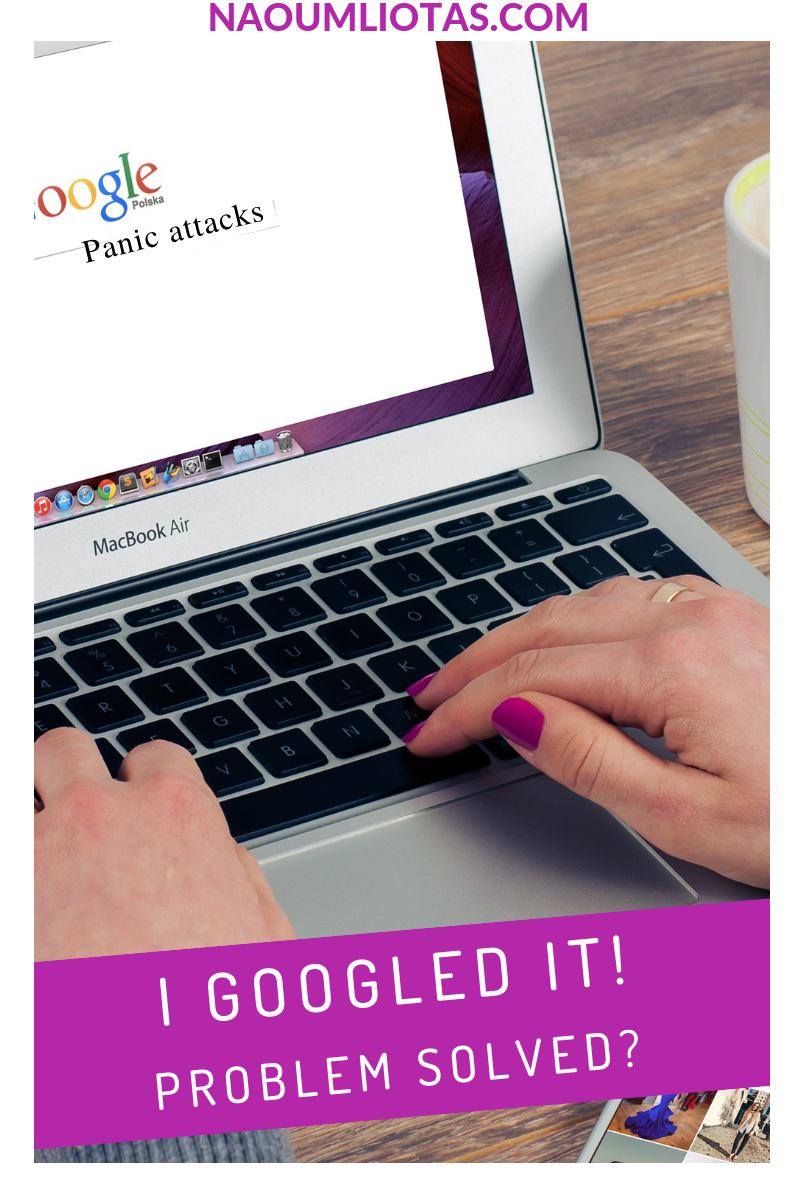Have you noticed how by googling our issues, we sometimes hope that this will make them go away?
It might be that we are experiencing some panic attacks. Or anxiety that settles in early in the morning. Some loss we experienced a few weeks or months back. Whatever the reason, searching for an answer and what is happening to us on Google seems like the reasonable thing to do.
OK, so I’ve been diagnosed with diabetes. I need to research what this means on the internet, don’t I?
Well, of course, googling for something on the internet or researching for what to expect and what might be happening to us can have several benefits.
- We get more information about a condition
- We help ourselves by feeling ‘normal’ and that what is happening to us is to be expected
- We can satisfy our curiosity about the reasons behind our present predicament
- We can find some relief by knowing that others have gone through the same stuff that we are going through
- We can find some exercises we can try and advice we can follow.
OK, so what’s your reason for this article? What do you want to convey?
I am thinking about how googling for something might temporarily satisfy our curiosity and give us some answers. However, at the same time, it might act as finding the justification we need for not going further than what’s comfortable for us. By this, I mean that asking for help is always difficult and finding some answers might keep us from going the extra mile (and actually getting help).
Is there another catch in googling our condition?
Yes, indeed. One more catch is the fact that the map is not the territory. Knowing about a condition can be very different than managing it (both emotionally and practically). Moreover, it might be that we know more but we fail to integrate or embody what we know. We fail to connect body, emotions and thoughts to arrive at a place that we feel we can be effective in managing what we know.

There are two examples here. One is indeed the map. By having a map of what China looks like, you cannot really have an understanding of how it is to be walking in the streets of Beijing. How the air feels or what people you will meet there look like and the things they like to talk about. Knowledge is very different from experiencing (and we tend to forget that).

Another example is the iceberg. You expect to know the iceberg by looking at its visible part. However, only the 15% of an iceberg is visible. The other 85% of the iceberg is not visible. You might acquire some more knowledge about something but that will not help you in comprehending how you are experiencing the whole situation; what emotions are invoked in your body; what sensations you feel in your body and how you can make sense of those.
Can you put this article in a few words as simple advice?
I can try…
The map is not the territory, so allow yourself to go beyond cognitive understanding by exploring a situation more holistically (especially a symptom, issue or condition you might be experiencing).
Photo of the globe by chuttersnap on Unsplash
Photo of iceberg by Alexander Hafemann on Unsplash

